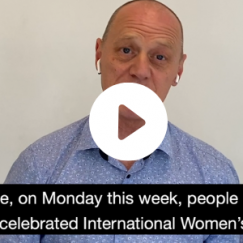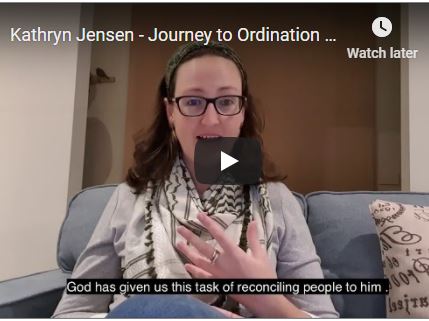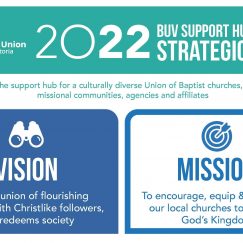19th October 2020
Flourishing Spirituality Devotion Part 3: Prayer and Fasting

PART 3: PRAYER AND FASTING
by Peter Botross
At the core of our Flourishing Church Framework is the word spirituality. Christian spirituality refers to rhythms, such as prayer and fasting, that cultivate intimacy with the Almighty. Intimacy with the Lord precedes effective ministry for the Lord.
On His Sermon on the Mount Jesus articulated three worship disciplines for His followers. He declared that those who relate to God as their Heavenly Father, manifest their new identity through the practices of giving, prayer and fasting. These worship habits are not the price of our intimacy with God, they are the product of the blood-purchased, Spirit-endowed identity of Jesus’ followers. Accordingly, God’s people collectively and individually are characterised by a spirituality that reflects their new identity through new practices.
Jesus’ treatment of the subject of worship rhythms in Matthew 6:5-8 and 16-18 inspires and guides our practice of prayer and fasting individually and corporately as a family of churches.
- The premise of prayer and fasting (Matthew 6:5 & 16)
Jesus anticipated that His followers would engage in the spiritual practice of prayer and fasting.
Did you notice that in Matthew 6:5 &16, Jesus stated “when,” not “if” you pray and fast? He was alluding to the reality that God’s children will pray and fast – not as an obligation, but as a formative spiritual rhythm. Is it any wonder that the Scripture portrays many examples of prayer and fasting?[1]
Fasting accompanied by prayer fosters genuine intimacy with God and prepares us to experience personal and communal transformation. By giving up food to focus on and deeply connect with our Heavenly Father, we train ourselves to value Him above our necessities. As His value increases in our estimation, the value of worldly things proportionately decreases in comparison (Philippians 3:8-9).
- The practice of prayer and fasting (Matthew 6:6-8 & 16-18)
Prayer is a deliberate and intimate connection with our Heavenly Father, not merely to enjoy His presents but to delight in His presence. Jesus taught us to establish the rhythm of going into a room (which shows intentionality), shutting the door (which gives privacy), and preparing to chat with our Father (which leads to sweet intimacy). Likewise, fasting is a voluntary abstinence from food and/or fluid for a period of time in order to seek God earnestly.
Importantly, Jesus emphasised the manner in which we are invited to pray and fast. He spoke of the heart behind the practice. Jesus asserted that external activities are capable of disguising tainted motives. Even spiritual disciplines can be manipulated to promote self-centeredness, self-righteousness and self-importance.
Echoing Isaiah 58:2-3, Jesus warned His followers about hypocritically deploying prayer and fasting as a manipulative tool for self-centred living. Jesus clarified the motivation for prayer and fasting is not to seek our will, but God’s will. By voluntarily saying “no” to our fleshly desires via the abstinence of food, we seek our Heavenly Father to activate our selfless muscles. Genuine selflessness unleashes heaven’s blessings.
- The promise of prayer and fasting (Matthew 6:6 &18)
Jesus promised a spiritual reward for those who sincerely seek God through prayer and fasting.
What’s the reward? No idea!
We do know experientially that prayer and fasting make a supernatural difference in our personal, family and church lives. Martin Luther affirmed: “None can believe how powerful prayer is and what it is able to effect, except those who have learned it by experience.”[2]
Various narratives in the Scripture reveal glimpses of the blessings that accompany prayer and fasting. Fasting promised national deliverance (Jonah 3:5), revelations (Daniel 9:3-4, 20-23), answers to prayers (Ezra 8:23), breakthrough (2 Chronicles 20:3-4), spiritual health and city-wide transformation (Isaiah 58:11-12).
Fasting is a spiritual practice for personal and corporate transformation. “Fasting is the secret key that unlocks heaven’s door and slams shut the gates of hell.”[3]
Questions:
- What has been your personal experience of prayer and fasting?
- What has motivated you and your church to engage (or ignore) the practice of prayer and fasting?
- John Wesley refused to ordain anyone to ministry unless they were in the habit of fasting till 4:00pm two days per week. What can you do to incorporate the practice of fasting in your life and ministry context?
- Reflect on Isaiah 58. What stands out to you out of these blessings of fasting?
God Bless,
Peter
Peter Botross
BUV Church Health Consultant
[1] Exodus 34:28, Judges 20:26, 2 Chronicles 20:1-30, Ezra 8:23, Daniel 9:1-4, Esther 4:16, Acts 10:9-10, Acts 13:2 & 14:23
[2] Robinson, Stuart. 2005. The Prayer of Obedience. CityHarvest Publications: Queensland.
[3] Franklin, Jentezen. 2007. Fasting: Opening the Door to a Deeper, More Intimate, More Powerful Relationship with God. Charisma House: Florida.
Previous Devotions:
Part 1: Flourishing Spirituality At the Centre
Part 2: Praise and Worship











